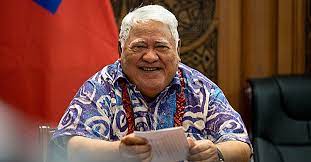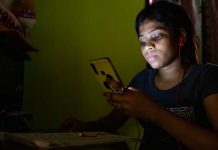By Oliver Hasenkamp
For decades, Samoa was seen as the most politically stable country in the Pacific. Tuila’epa Sa’ilele Malielegaoi served as prime minister for almost 23 years with little opposition. His Human Rights Protection Party (HRPP) had been in power for nearly 40 years and was the only party represented in the country’s parliament, the Fono, in the previous term. Yet there was little doubt about the democratic spirit of the government internationally.
But that has changed significantly with the April 2021 election. The HRPP lost almost half its seats, and the newly-founded opposition party Faith in the One God of Samoa (Fa’atuatua i le Atua Samoa ua Tasi or FAST), led by Fiame Naomi Mata’afa, won the same number of seats as the HRPP. A political earthquake in itself, not to mention the election of a female head of government in a country where only about 10 per cent of MPs are female. But since the one remaining independent MP in parliament has sided with FAST, there has been a political and legal battle for power in Samoa, with the previous government trying to prevent the new government from taking office.
The HRPP nominated an additional member of parliament on its own accord, under the pretext of increasing the female quota. Samoan head of state, Va’aletoa Sualauvi II, who is politically aligned with the HRPP, called for new elections on 21 May to try to break the deadlock. But both moves were overturned by the country’s Supreme Court, ordering parliament to open on 24 May, which was boycotted by the HRPP and the head of state. With the parliament’s doors having been locked, Mataʻafa was ultimately appointed the new head of government by FAST MPs outside the Fono.
Trump’s political reach
Since then, there have been two rival governments: the new government led by Mataʻafa and backed by the Samoan courts, and the previous government led by Malielegaoi and backed by the head of state, which continues to refuse to transfer power peacefully. Many observers are talking of a coup by a government that was actually voted out. This is remarkable because, for many years, Malielegaoi had been a champion of democracy and was considered one of the greatest critics of Josaia Voreqe Bainimarama, prime minister of the neighbouring island state of Fiji, who himself came to power in a military coup in 2006.
The situation in Samoa is complicated even further by a controversial judicial reform last year, criticised as an attack on the separation of powers and triggering the creation of the new opposition party. Malielegaoi no longer sees the courts, but rather the Samoan head of state, as having supreme authority.
Many people in Samoa can’t help but be reminded of former US President Donald Trump – not least because of Malielegaoi’s fondness for the phrase ‘fake news’. And much like Trump, Malielegaoi talks about electoral fraud without presenting evidence of any kind. This refusal to accept reality is taking increasingly grotesque turns: he no longer talks about the will of the people, referring to himself instead as the leader of his country appointed by God.
War or Peace
Some Samoans fear things could turn violent – completely unthinkable in a country so dependent on tourism. Malielegaoi called for calm, while creating even more uncertainty by suggesting there was a threat to peace in the country, a page straight out of the Trump playbook. Residents of the head of state’s home village have put it under ‘their protection’, setting up roadblocks to check vehicles passing by.
But while these events are often a precursor to violence in other countries, there are legitimate hopes for peace in Samoa. Like most Pacific island states, Samoa does not have a military. So while there is no institution that can put an end to the deadlock, this also means there is no army to exacerbate the situation and encourage violence – as has happened several times in neighbouring Fiji.
In fact, something good could actually come out of this tense political situation. What has played a significant part in the country’s decades of stability is that Samoan society is based on a complex traditional system, placing huge importance on family cohesion and the authority of the family leaders, matai, or ‘chiefs’ – a system that makes it difficult to break out of traditional structures. This has been causing much frustration among young people for years. However, it could also prevent individuals from turning radical, since the use of violence could be sanctioned by the balanced family structures that pervade Samoan society.
What’s more, Mataʻafa and her party have so far remained cool, calm and collected in responding to the provocations thrown at them by Malielegaoi. Yet, Mataʻafa does face a difficult task: she seeks to reform the political structures that have crumbled over the years under Malielegaoi’s government, yet as a comparatively progressive voice in conservative society, she herself comes from the political establishment and doesn’t want to dissolve the traditional system.
The power struggle
Mataʻafa was deputy prime minister under Malielegaoi before resigning in protest over last year’s judicial reform. Her father was the first head of government after Samoa gained independence from New Zealand in 1962. And unlike Malielegaoi, she comes from one of the country’s most powerful families, one of the four holders of the Tama-a-Aiga title, usually bestowed upon the Samoan head of state. On paper, Mataʻafa could bring an even greater concentration of power in the long term than before.
Most recently, she has been backed by both the Catholic Archbishop of Samoa – a key voice in a very Christian but fragmented society – and some of the Micronesian states in the northern Pacific. However, other neighbours, in particular regional powers Australia and New Zealand, have so far been very reluctant to intervene – they still painfully remember the criticism received and influence lost in the region after taking a stand against the Fijian military government more than ten years ago. Since the split of the Pacific Islands Forum, there is also a lack of a united body to step in and mediate.
While the United Nations has called for a dialogue between the two sides in Samoa at an international level, the European Union has not yet expressed its views. Unlike with Australia and New Zealand, this is likely just a general lack of interest rather than polite restraint.
Germany, in particular, has been penalising Samoa and the Pacific island states for years – beyond sporadic cooperation in areas such as climate change. Hardly anyone in Germany is aware that Samoa, like many other Pacific islands, was under German colonial rule until the First World War. Today, Germany still does not have an ambassador in the region.
This political disinterest and the lack of attention paid to the crimes committed under German colonialism are particularly acrid, given what’s going on in Samoa. The system for regulating land ownership and the associated matai titles, as well as the documentation underlying it – now the subject of the controversial judicial reform – largely date back to the German colonial era.
SOURCE: IPS JOURNAL/PACNEWS

















